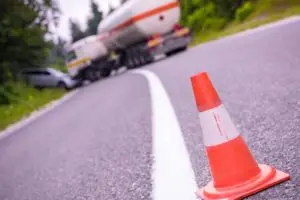
If you are in an accident with a large truck, you have rights. But what you do after an accident (and when you do it) will have a big impact on your claim—and you don’t have much time to file a claim. Not only do you have to do so before the statute of limitations, you must take several actions before the statute expires, or you will make your case far more difficult. You will want to make calling a Fort Myers truck accident lawyer one of those first steps.
What to Do After a Truck Accident
No one ever expects to be in a truck accident. As such, the whole experience can be overwhelming. While it may seem hard, stay calm and pay attention to what you do and what you say.
A few things you should keep in mind include:
- Prioritize your safety: Your safety after an accident is the number one priority. The rest of this list will depend on if you can physically move without further injury. Nothing is worth risking your life. If you think you have a serious injury, call for help. Do not attempt to do anything else.
- Scan the scene: If you can safely get out of your vehicle, the first thing you want to do is scan the scene. Is there an immediate danger? Is the other driver a threat? Are you in the path of traffic? Is the truck carrying hazardous materials? Once you rule out any dangerous situations, check for any red flags. Is there unusual damage to the truck? Are all lights working? Is the driver under the influence or acting strangely? Take a mental note and try to write down what you remember after you leave the scene.
- Exchange insurance information: Without insurance information, you can’t file a claim against the other party. When you exchange information, be sure to get the driver’s name, the policyholder’s name, the name of the insurance company, the policy number, and a contact number for the insurance provider. The easiest way to document this information is to take a picture of the insurance card. Be sure to get both sides.
- Report the accident: Florida law only requires you to make a police report under certain circumstances. However, you can assume that a large truck accident will meet all of these qualifications. The police will take a statement from both drivers and make a written report of the accident. Be sure to get a copy of this report once the officer files it with the state.
- Take pictures: Pictures will be your best source of evidence after an accident. They can clear up any confusion or conflicting stories. Pay attention to what type of pictures you take. Be sure to include both vehicles, any damage to the vehicles, and any other property damage.
- Talk to witnesses: In most cases, witnesses can be just as valuable as physical evidence. If someone saw the accident, there’s a good chance they are going to want to help. Make sure you get the name and phone number of any witness who stops to help at the accident scene. Your attorney will want to talk to them once they review your case.
- Go to the doctor: After any serious accident, you should always go to the doctor. Following an accident, adrenaline is high and you may not recognize signs that something is wrong. This is especially true for traumatic brain injuries and spinal cord injuries for which symptoms may not show up right away. Additionally, it’s important to get immediate care to preserve your personal injury protection (PIP) insurance benefits and establish your claim. The longer you wait to get medical attention, the more likely the insurance company is to question your injuries.
- Call an attorney: Truck accident claims are complicated. While the law does not require you to have an attorney, this is not something you want to do on your own. Unlike typical motor vehicle accidents, truck accidents may involve multiple parties, increasing your rights for recovery. Without an attorney, it may be difficult to fully maximize your claim.
Expect More, Receive More: Legal Support That Feels Like Family
Insurance Claims vs Personal Injury Lawsuits
After an accident, you’ll probably hear the terms “claim” and “lawsuit” tossed around interchangeably. While the two aim for the same goal, they are not the same thing. After a truck accident you will be dealing with at least two different insurance companies; the other party’s insurance and your own.
You’ll use your own insurance to cover the first $10,000 of medical expenses through your PIP policy. The other party’s insurance will cover the cost of repairs, medical bills that exceed your PIP coverage, and pain and suffering claims.
PIP insurance is pretty straightforward. In most cases, all you have to do is call up your insurance company and inform them about the accident to use your benefits. Dealing with the other party’s insurance is a different story. While they may be easy to work with when it comes to repairs, and maybe even some medical coverage, it’s very hard to get what you deserve simply by making a claim.
This is where a personal injury lawsuit comes in. A personal injury suit is a legal action. This tells the insurance company if they don’t work with you to come to a fair and just settlement, you will take your claim to court. Once you go to court, the insurance company no longer has a say in how much they will have to pay. Instead, a jury of your peers will review your case and make a final decision.
The majority of cases do not make it to court. However, many of them do involve filing a personal injury suit. Insurance companies usually don’t like to take the risk and incur the excess costs associated with court, so they will typically settle before the case makes it that far.
How Long Do You Have to File a Claim?
There are a couple of different time frames you need to keep in mind after an accident. These time limits can greatly affect your rights to certain benefits. The first is your right to PIP benefits. Florida has very strict laws regarding PIP insurance. To use your benefits, you must see a qualified health care professional within 14 days of the accident.
To have access to your full benefits, your care provider must diagnose you with an emergency medical condition. This diagnosis does not have to be within the 14 days. However, it is important to note, without an emergency medical condition diagnosis, you will only have access to $2,500 of PIP benefits.
The second time frame is in regards to your right to file a claim and file a personal injury suit. In Florida, victims have four years to file a personal injury suit after an accident. That said, it is almost never a good idea to wait this long.
There are a few reasons for this:
- Evidence: Evidence is important after any accident. The longer you wait to file a claim, the less reliable the evidence becomes. In the case of witness testimony, memories fade. In regards to video footage, that evidence may get erased if you wait too long.
- Your medical care: The law allows you immediate access to your PIP benefits, however, that’s only $10,000. For serious injuries, that is not nearly enough. A personal injury suit can help you cover the costs of your medical care so you are not in a position where you have to figure out how you will afford this care on your own.
- Your well-being: The sooner you process an accident claim, the sooner you can begin to put the ordeal behind you. If you know you are going to make a personal injury claim, there is no reason to wait.
Common Injuries After a Truck Accident
If you take a look at recent truck accident statistics, the number of accidents isn’t just going up, it’s going up dramatically.
A recent 9 percent increase took place in fatal accidents involving at least one large truck or bus, bringing the total in just one year to 4,889 dead. If you go back further, fatal accidents involving large trucks have jumped 42 percent in less than a decade. These numbers are nothing short of alarming.
These truck accidents can cause serious injuries. A car or truck is no match against an 80,000-pound vehicle. Even a seemingly minor rear-end accident can have devastating consequences. A personal injury attorney can help connect you with qualified care providers and make sure you get the care you need.
Common injuries after a truck accident include:
- Traumatic brain injuries: Traumatic brain injuries (TBIs) happen as the result of a hard blow to the head or a penetrating wound to the skull. The force of a collision can cause your head to move violently inside the car and hit the seat, steering wheel, or window. If you suspect you’ve suffered a TBI, contact a doctor right away.
- Spinal cord injuries: Motor vehicle accidents are the leading cause of spinal cord injuries. But as we said earlier, symptoms may not appear right away. Instead, they may get progressively worse as the spinal cord begins to swell. If you experience extreme back pain, numbness, tingling, or loss of sensation, go to the doctor right away.
- Broken bones: Human bones can only sustain so much force. During an accident, the force of the collision can throw your limbs against hard surfaces in the vehicle. While every accident is different, common fracture sites include the face, legs, arms, ribs, and clavicle.
- PTSD: After an accident, most people focus on their physical injuries. But after a truck accident, mental health issues are also very common. A truck accident can be a traumatic experience. A doctor may make a PTSD diagnosis after a person experiences symptoms for at least one month. Common symptoms include flashbacks, nightmares, guilt, anxiety, avoidance, and hopelessness.
Complete a Free Case Evaluation form now
How Much Is a Truck Accident Settlement Worth?
Although money won’t take away the pain of your injuries, it can help you get the care you need. After an accident, be wary of attorneys who promise you a certain outcome. Many variables affect the value of a personal injury case. However, certain costs are typical in a personal injury suit.
These include:
- Medical bills: In most cases, your PIP insurance won’t be enough to cover the costs of injuries related to a truck accident. A personal injury suit can help you recover most, if not all, medical costs associated with your accident.
- Lost wages (past, present, and future): Serious injuries can keep you out of work, and the lost wages can be devastating to your finances. A personal injury suit can help you recover lost wages so you don’t feel like you have to rush back to work.
- Home modifications: Disabling injuries like traumatic brain injuries, spinal cord injuries, and broken bones can limit your ability to move around your house. When this happens, residential modifications can help make mobility easier. Common modifications include wheelchair ramps, stairlifts, and handrails.
- Pain and suffering: Truck accidents can cause substantial physical and emotional pain. This may include chronic pain, recurring pain, depression, anxiety, and PTSD.
- Wrongful death: Unfortunately, truck accidents take thousands of lives every year. A wrongful death claim will cover funeral and burial costs, outstanding medical bills, lost wages, and pain and suffering.
Don’t Wait. Stand up for Your Rights Today.
Your rights matter. Don’t wait to get the help that you deserve. A personal injury attorney can work with you to develop a strategy that recognizes your unique needs and help guide you through the process. While the law allows you four years to file a claim, it is almost always a good idea to get started as soon as possible. The sooner you begin your case, the sooner you can focus on your recovery. If you have questions about a recent truck accident, contact an experienced truck accident attorney for more information about your rights.
Call or text (239) 334-3933 or complete a Free Case Evaluation form






